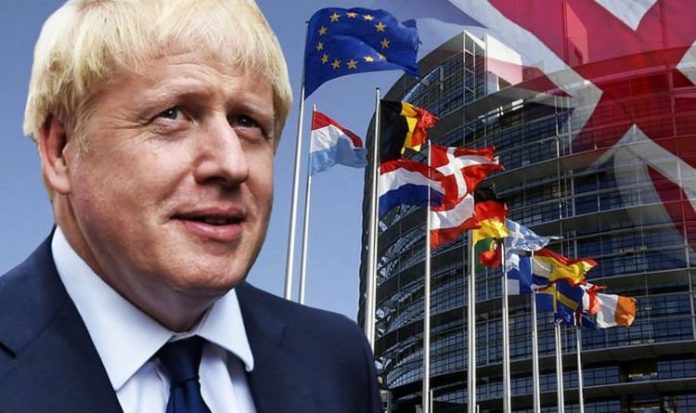Brexit: George Eustice calls EU fishing demands ‘ludicrous’
A source close to the UK negotiating camp in Brussels said: “There won’t be any agreement if the EU doesn’t recognise political reality. We’ll only keep talking if there is some movement and we think there’s any point.” David Frost, leading the British team, warned his European Union counterpart Michel Barnier yesterday that any new proposals must reflect the UK’s status as an independent country.
Tory peer Lord Frost and Mr Barnier will continue talks today but insiders were downbeat about the latest round.
A Downing Street source said: “Not very much progress has been made and we do need to see some progress.”
One EU diplomat claimed discussions on controversial fishing quotas were “now closing in on a political landing zone”, but UK insiders played down the suggestions.
A Government source said: “There’s been no breakthrough on fish. Nothing new has been achieved on this today.”
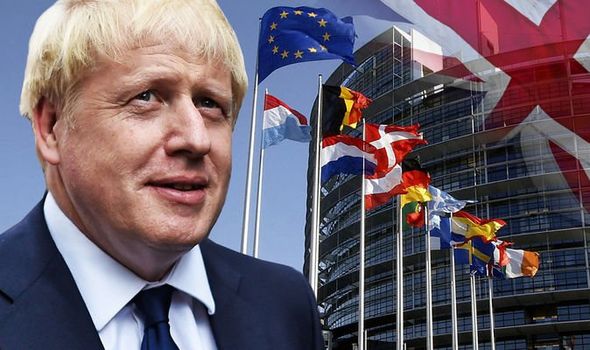
Boris threatens to walk (Image: Getty)
Mr Johnson and European Commission president Ursula von der Leyen spoke for more than an hour on Saturday in an attempt to break the stalemate.
But they failed to reach agreement on the three key remaining issues – fishing quotas, the so-called level playing field and governance.
Time is running out for a deal to be struck before the Brexit transition period ends on December 31.
But an EU source suggested the drama was part of the process and an agreement could be reached by tomorrow, adding: “Storms are coming and black ice is forecast but it feels too early for the talks to derail. My money is on a Tuesday deal.”
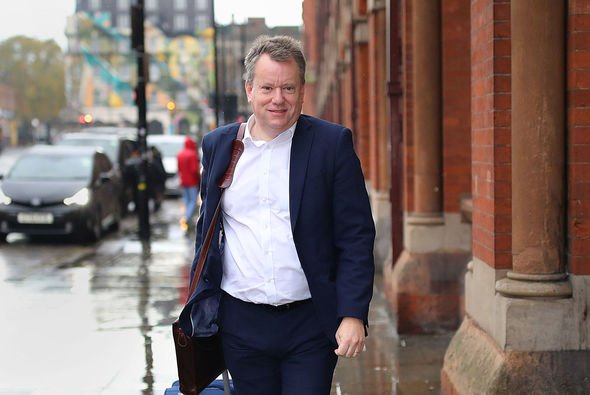
Lord Frost sets off for Brussels yesterday (Image: Aaron Chown/PA)
Environment Secretary George Eustice warned, however, that the talks were in a “very difficult position” after a series of “setbacks”.
He accused the EU of introducing “a whole load of additional demands” late in the day and insisting on “ludicrous” conditions on future fishing rights.
Mr Eustice said: “It is in a very difficult position – there is no point denying that. We will continue to work on these negotiations until there is no point doing so any further. But there is no point denying that what happened late last week was a setback.”
The Environment Secretary said that the talks were nearing the end of the road with the UK having to decide in the next few days whether to walk away without a deal.
He said: “I think we probably are now in the final few days in terms of deciding whether there can be an agreement. Of course, if the ambience warms up again and actually great progress is made and it is just about sorting out the detail, then you can always find more time, you can always extend.
“But I think unless we can resolve these quite fundamental divergences at the moment then we are going to have to take a position in the next few days.”
The Cabinet minister said the UK was prepared to offer a multi-annual deal on fishing quotas of up to three years, but the EU was insisting on access to British waters forever.
Mr Eustice added: “We would be the only country in the entire world that could agree that. Such a suggestion really is quite ludicrous and not consistent with international law.”
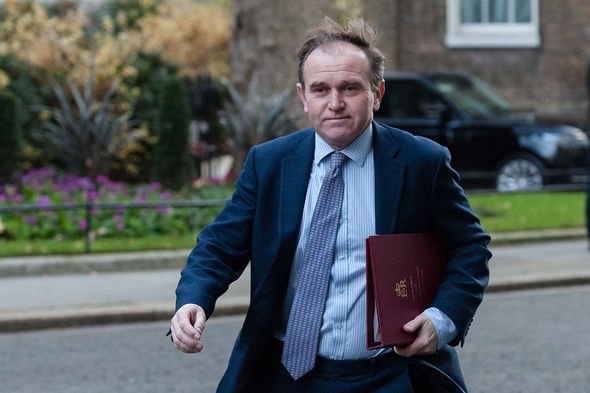
Secretary of State for Environment, Food and Rural Affairs George Eustice (Image: WIktor Szymanowicz/NurPhoto/PA)
The critical stage of the trade negotiations comes as the Prime Minister pushes ahead with legislation that allows him to tear up the Brexit divorce deal.
MPs will vote on whether to overturn amendments by the House of Lords that removed provisions in the UK Internal Market Bill relating to the Irish border.
Mr Johnson has insisted that the proposed law is a safety net that will “guarantee the economic and political integrity” of the United Kingdom.
But critics, including some senior Tories, say it must be stopped as it will break international law.
The proposed laws infuriated the EU and led to Miss von der Leyen launching legal proceedings against the UK.
MPs will consider more legislation later in the week containing similar provisions when the Taxation (Post-Transition Period) Bill goes before the Commons.
Ireland’s foreign affairs minister Simon Coveney said he believed the negotiating teams would find a way to break the deadlock.
He said: “Not having a structured future relationship agreement in place is going to be very, very costly and very, very disruptive for the UK and for Ireland.
“That, in the context of a post-COVID world which is hugely challenging economically for everybody, doesn’t make any political sense and it certainly doesn’t make any economic or social sense either. I think the negotiating teams and senior politicians will find a way of getting a deal here, but at the moment we are in a difficult place as we try to close it out.”
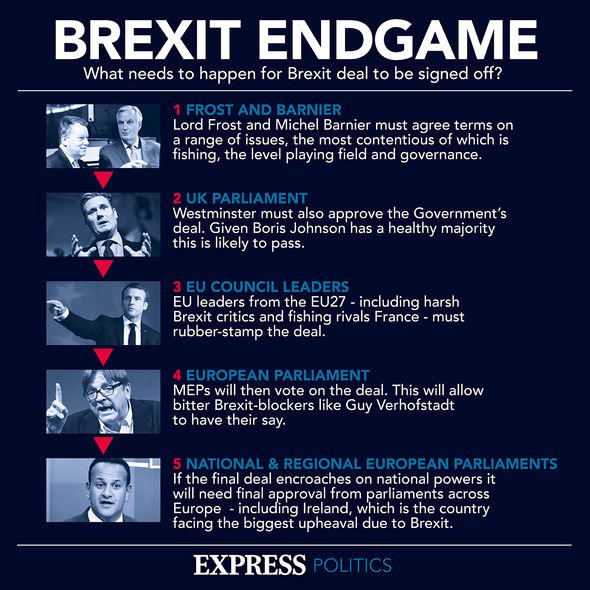
How it will end (Image: Express)
Meanwhile, the Government’s contingency plans to tackle a possible no-deal scenario have been leaked as it looks at ways to deal with short-term supply chain problems caused by border delays.
But a Government spokesman said that it was “vital” businesses and citizens prepared now “for the opportunities and changes” at the end of the Brexit transition period.
The spokesman said: “As a responsible Government we continue to make extensive preparations for a wide range of scenarios, including the reasonable worst case.
“This is not a forecast or prediction of what will happen but rather a stretching scenario. It reflects a responsible Government ensuring we are ready for all eventualities.”
